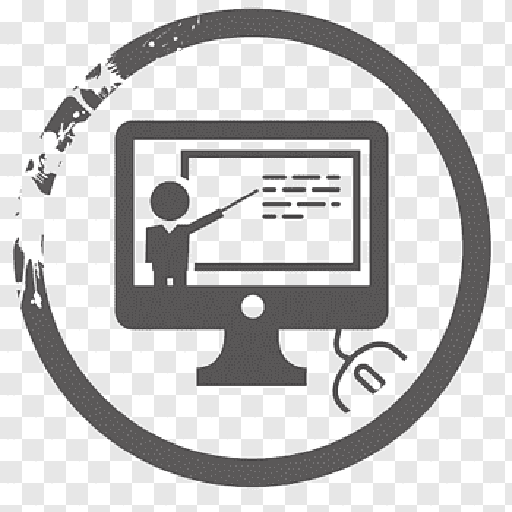Quest for pedagogical technology and its use in education systems
Abstract
In connection with the modernization of the education system, the role of using information technologies and filling the educational information environment (EIE) with them has greatly increased. One of the meta-disciplinary results of the main educational programm of basic general education is “formation and development of competence in the use of information and communication technologies”. Since this requirement is meta-subject, that is, according to inter-subject concepts and universal educational actions, it means that this requirement applies to all subjects.
References
Kailova T., Salomaki T., Taina J. In quest for better understsnding of student learning experiences // Procedia – Social and Behavioral Sciences 2012. №46. – P. 8–12.
Vasilenko A. V. Quest as a pedagogical technology. History of Quest Technology Origin // https://www.predmetnik.ru/conference_notes/69. [Василенко А.В. Квест как педагогическая технология. История возникновения квест-технологии].
Interesting tasks for quests. Tasks for the quest in the room [Electron resource]. – URL: http://fb.ru/article/183600/interesnyie-zadaniya-dlya-kvestov-zadaniya-dlya-kvesta-v-pomeschenii (date of address: 12.03.2016). [Интересные задания для квестов. Задания для квеста в помещении [Электронный ресурс].
Information technologies in education. Web-Quest and Project Method / [Информационные технологии в образовании. Веб-квест и метод проектов https://studbooks.net/1859368/pedagogika/informatsionnye_tehnologii_obrazovanii_kvest_metod_proektov]
Using WebQuest technology as an interactive educational environment to enhance student learning activities and networking [Использование технологии веб-квест как интерактивной образовательной среды для активизации учебной деятельности учащихся и развития сетевого взаимодействия] http://vio.uchim.info/Vio_124/cd_site/articles/art_3_6.htm.
Quest - Technologies in Education and Upbringing / [Квест – технологии в образовании и воспитании] / https://nsportal.ru/detskiy-sad/fizkultura/2017/03/17/kvest-tehnologii-v-obrazovanii-i-vospitanii
Kichireva, M.N. Educational quests as a creative pedagogical technology for students of new tenseness / Internet - journal “World of Science” ISSN 2309-4265 [Кичирева М.Н. Образовательные квесты как креативная педагогическая технология для студентов нового покаления / Интернет – журнал «Мир Науки» ISSN 2309-4265] http: // mir – nauki.com.
Naumova, T.A.; Baranov, A.A.; Tarakanov, Ya.L. Development of the leadership personality qualities at the students of the university (in Russian) // Internet-journal “Naukovedenie”. Volume 7b, 46. – С. 8–12. [Наумова Т.А., Баранов А.А., Тараканов Я.Л. Развитие лидерских качеств личности у студентов ВУЗа // Интернет-журнал «Науковедение». Том 7б, № 46. – С. 8-12].
Osyak, S.A.; Sultanbekova, S.S.; Zakharova, T.V.; Yakovleva, E.N.; Lobanova, O.B.; Plekhanova, E.M. Educational quest - modern interactive technology (in Russian) // Modern problems of science and education. – 2015. - № 1–2.; URL: http://www.science-education.ru/ru/article/view?id=20247 (date of address: 28.04.2020). [Осяк С.А., Султанбекова С.С., Захарова Т.В., Яковлева Е.Н., Лобанова О.Б., Плеханова Е.М.Образовательный квест – современная интерактивная технология // Современные проблемы науки и образования. – 2015. – № 1-2.]
Sokol I.N. Questor classification [Electron resource] // Molodiye vents. – 2014. – № 6(09). – С. 138–140. [Сокол И. Н. Классификация квестор [Электронный ресурс] // Молодий вчений. – 2014. – № 6(09). – С. 138–140]. – URL: http://molodyvcheny.in.ua/files/journal/2014/6/89.pdf
Shvedova, M.V. Quest-technologies in education. [Шведова М.В. Квест-технологии в образовании / nsportal.ru/shkola/literatura /library/2018/01/16/kvest-tehnologii-v-obrazovanii].

In submitting the manuscript to the International Journal on Integrated Education (IJIE), the authors certify that:
- They are authorized by their co-authors to enter into these arrangements.
- The work described has not been formally published before, except in the form of an abstract or as part of a published lecture, review, thesis, or overlay journal.
- That it is not under consideration for publication elsewhere,
- The publication has been approved by the author(s) and by responsible authorities – tacitly or explicitly – of the institutes where the work has been carried out.
- They secure the right to reproduce any material that has already been published or copyrighted elsewhere.
- They agree to the following license and copyright agreement.
License and Copyright Agreement
Authors who publish with International Journal on Integrated Education (IJIE) agree to the following terms:
Authors retain copyright and grant the International Journal on Integrated Education (IJIE) right of first publication with the work simultaneously licensed under Creative Commons Attribution License (CC BY 4.0) that allows others to share the work with an acknowledgment of the work's authorship and initial publication in this journal.





1.png)
